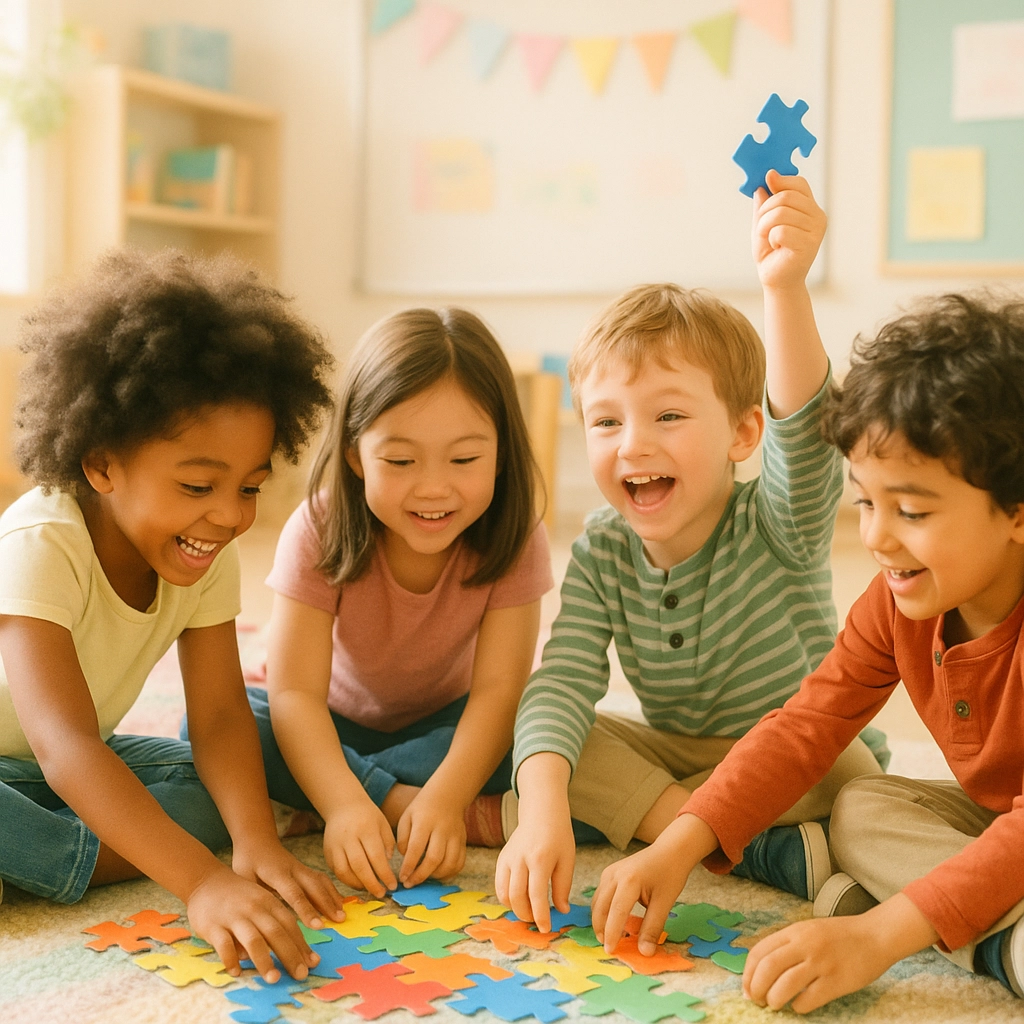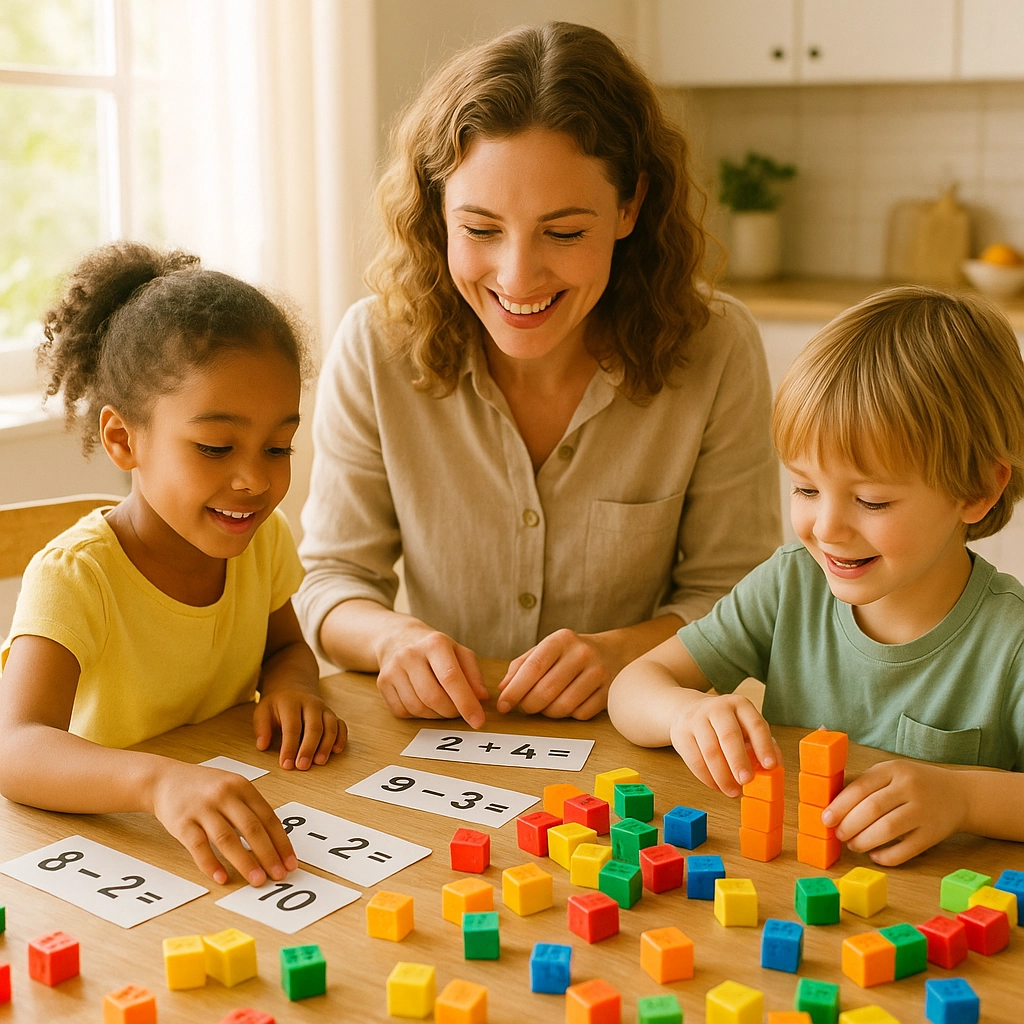If you’ve ever watched a child seamlessly switch between Spanish and English—telling a joke to their abuela, then answering a teacher’s question a beat later—you’ve witnessed a kind of real-life superpower. But what’s really happening behind the scenes? Bilingual kids aren’t just flexing their language muscles. They’re building mental agility, empathy, and academic confidence that give them a lifelong edge.
Let’s dive into why bilingualism is one of the most powerful advantages you can give your child—and what makes kids at Ready For Spanish such superheroes in the making.
A Workout for the Brain: Cognitive Benefits of Bilingualism
Think of the bilingual brain as a well-trained athlete in a mental gym. Every time a bilingual child decides which language to use—whether asking “Can I have a snack?” or “¿Puedo tener una merienda?”—their mind is running a rapid-fire set of decisions. This mental workout leads to a range of powerful cognitive benefits.
Sharper Executive Function
Executive function is the brain’s command center. It’s about focusing, planning, switching between tasks, and keeping distractions at bay. Bilingual kids develop this skill at a high level—because their brains are constantly sorting, filtering, and switching languages. Studies have shown that even toddlers raised in bilingual households are better at tasks involving self-control and problem-solving than their monolingual peers[1].
Cognitive Flexibility & Mental Agility
Juggling two languages teaches children to think flexibly. Want proof? A classic psychological study had children sort toys first by color, then by shape. Bilingual kids aced the switch, demonstrating how their brains are used to adapting rules and jumping between concepts[1]. This mental agility translates to everyday life and academic tasks that require quick thinking and creative approaches to tricky problems.

Supercharged Creativity
Bilingualism enhances not only convergent thinking (zeroing in on the right answer), but also divergent thinking (coming up with lots of creative ideas). This means bilingual kids are often more imaginative and resourceful[3]. In fact, researchers believe that navigating two languages gives children practice thinking “outside the box,” letting them approach challenges from new angles.
School Smarts: Academic Advantages That Go the Distance
It’s not just about being able to chat with more people—bilingual kids often experience measurable boosts in the classroom.
Early Academic Success
From the very start, bilingual children tend to have stronger learning skills: more focus, better memory, and advanced problem-solving abilities[2]. Imagine a kindergartener being able to remember story details, follow multistep instructions, and use logic during activities—these are skills fostered by managing two languages and cultures.
Better at Math, Logic, and More
Being bilingual seems to “train” the brain for abstract thinking. Bilingual children excel at understanding math concepts and solving word problems because their brains are comfortable holding different pieces of information at once—and switching between them[2]. This skillset also translates to science, reading, and even the ability to learn additional languages more easily later in life.
Lifelong Learning Advantage
Perhaps the best part: The academic benefits of bilingualism keep compounding. Research shows that bilingual kids often demonstrate greater perseverance and the confidence to approach unfamiliar material with curiosity, not fear[2]. That growth mindset sets the stage for academic achievement all the way through adulthood.

Social Superpowers: Bilingual Kids Are Empathy Experts
People sometimes focus on the “smarts” of bilingualism—but the social and emotional advantages might be even more powerful.
Advanced Perspective-Taking
Kids who grow up speaking more than one language are regularly exposed to different viewpoints, cultures, and ways of doing things. All this practice at “seeing the world through different eyes” shows up in studies: Bilingual kids can understand other people’s needs, intentions, and feelings earlier and with more nuance than their monolingual friends[4]. This makes them natural bridge-builders and peacekeepers on the playground (and one day, in the workplace).
Adaptability and Communication
Speaking more than one language trains kids in adaptability. They’re used to tuning in to different communication styles—and knowing when to use which one. This means bilingual children are often more skilled at navigating multicultural settings, and can make friends and work in teams more easily, wherever they go[4].
Deep Connections to Family, Community, and Identity
Embracing both languages allows children to keep strong ties to family, elders, and their cultural roots. For many, being able to talk with grandparents or participate in family traditions in both languages isn’t just a perk—it’s core to who they are. This deepens a sense of belonging and pride, fueling emotional resilience through all of life’s changes[2].

How Bilingualism Rewires the Brain
All these “superpowers” aren’t just lucky side effects. Managing two (or more!) languages actually changes the way a child’s brain is wired. Bilingual brains create stronger neural networks dedicated to control, memory, attention, and even emotion. This is what gives bilingual kids the edge in cognitive control and emotional intelligence—they’ve built the brain hardware to handle complexity, empathy, and learning on the go.
Ready For Spanish: Where Superpowers Begin
At Ready For Spanish, we see firsthand how learning in two languages transforms children’s lives—inside and outside the classroom. Our approach is all about play, music, movement, and real-life conversation, so every child develops those mental muscles and social strengths without ever feeling like they’re just grinding through drills. Want your child to unlock these benefits? Get started with Ready For Spanish today—and watch their superpowers grow, day by day.
Sources
[1] Research on cognitive flexibility and executive function in bilingual children.
[2] U.S. Department of Education: Cognitive and academic benefits of bilingualism.
[3] Studies on creativity and thinking patterns in bilingual learners.
[4] Research on empathy, cultural competence, and social-emotional benefits of bilingual education.


Comments